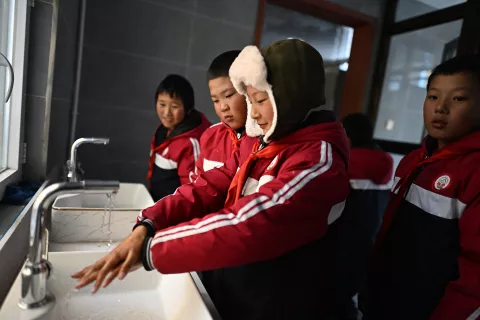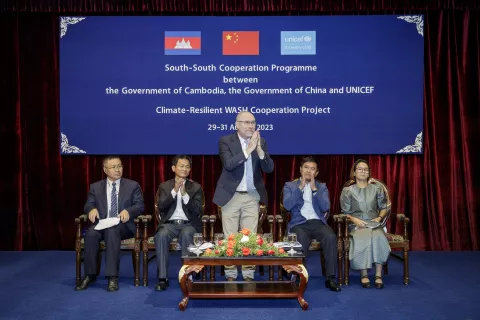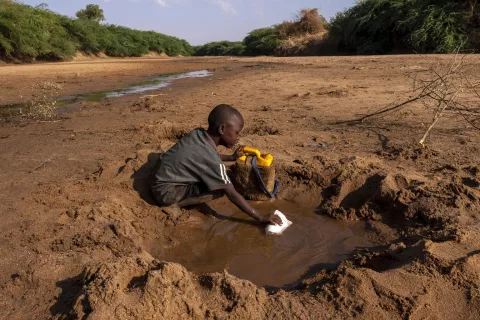Make Handwashing A Habit
Make Handwashing A Habit
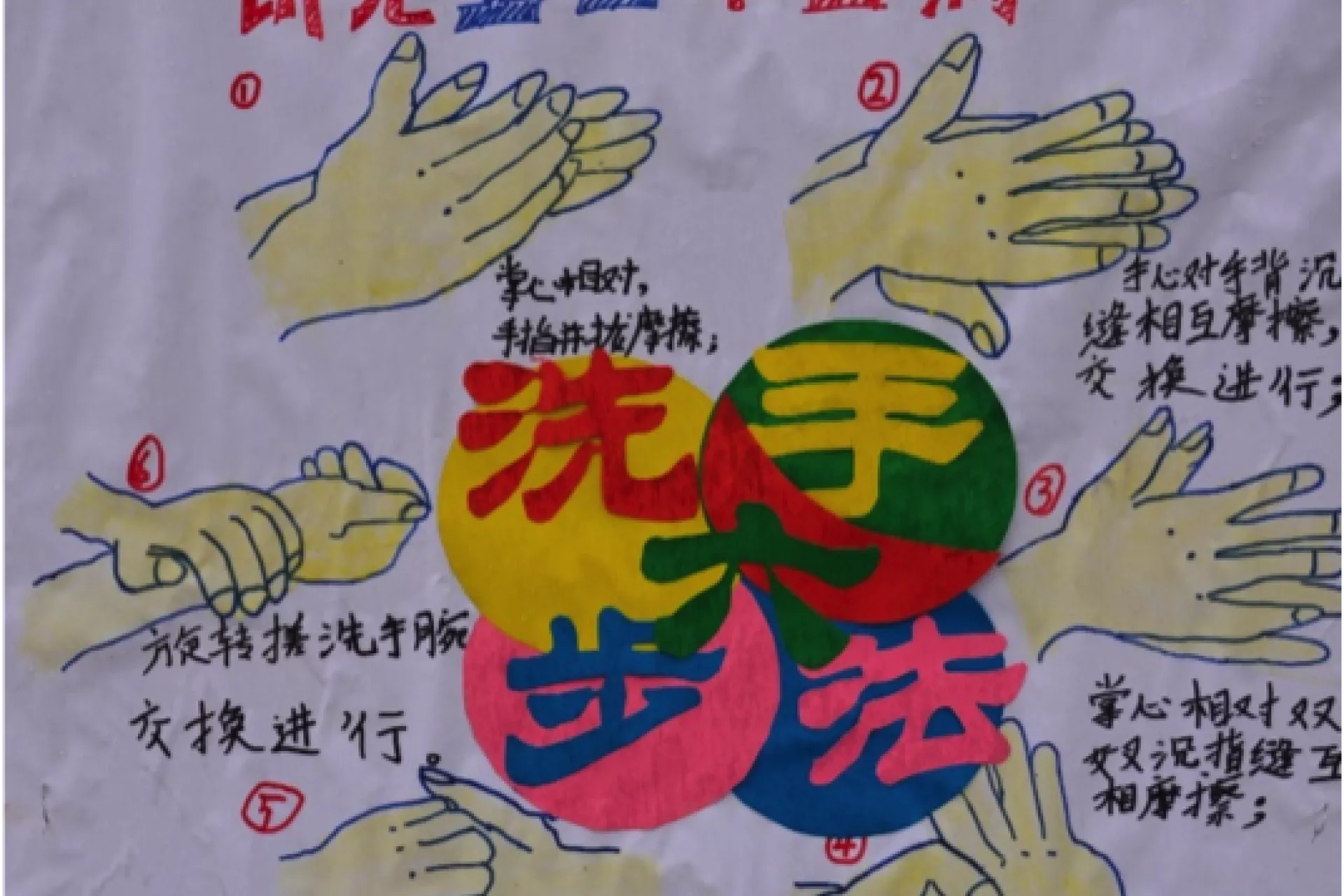
- Available in:
- 中文
- English
Have you washed your hands?
Most people don't give much thought to handwashing. It's common, a daily activity. Have you ever questioned: Why should we wash hands with soap? What is the importance of handwashing, especially to children? How many of you know that the 15th October is “Global Handwashing Day”?
If I were not involved in “UNICEF's Water, Sanitation and Hygiene project in China, I would probably not give much thought to handwashing. And I believe this is true for many.
It is said “illness finds its way by the mouth”. However, it is hands that act as the vector carrying the disease-causing pathogens from person to person. Inparticular after contact with faeces, body fluids like nasal excretions and contaminated foods or water. Evidence shows that washing hands with soap and water can prevent skin and eye infections, intestinal worms, H1N1 flu, and Severe Acute Respiratory Syndrome (SARS), and reduce illness in people whose immune systems are compromised. Handwashing with soap has proved to be the most cost effective approach for disease prevention.
Have you washed your hands correctly?
Since there are so many benefits to wash hands with soap, the next question is how to wash hands correctly? Through WASH project of UNICEF China, I have observed the “Six-Step Handwashing Approach” that can clean up to 99% of bacteria on the hands. To be specific:
- Wet hands with water and grab soap, rub palms with fingers closed;
- Right palm over left dorsum and left palm over right dorsum, or vice versa;
- Palm to palm, interlock and rub fingers closely;
- Rub half closed right fist in the left palm and then vice versa;
- Rub right thumb in left hand, and then vice versa;
- Close right fingertips and rub in the left palm, and switch hands.
To celebrate “Global Handwashing Day” 2016, children in UNICEF project schools undertook a series of activities for “clean hands, healthy life”. They made their own drawings of the six-step handwashing technique, and displayed them in their classrooms and in the community. I believe that making these simple but lively drawings, children not only develop a better understanding of handwashing with soap and practice in their daily life, but they can also take this to their family and wider community they live in.
Highlights of Global Handwashing Day
Global Handwashing Day is celebrated to foster and support a general culture of handwashing with soap in all society. The theme for 2016 is, “Make Handwashing A Habit”, to improve awareness of the benefits of handwashing with soap, and more importantly to make it daily practice in life.
UNICEF China has long been dedicated to the advocacy of handwashing with soap, a simple but sometimes neglected practice, and it has been implemented in all present and past projects, WASH projects in particular. A series of events were organized in project schools and counties, with active participation of students and the engagement of citizens from the communities.
I have the pleasure to share some of the highlights of Global Handwashing Day 2016, celebrated in several counties implementing Water, Sanitation and Hygiene in Schools projects supported by UNICEF China.
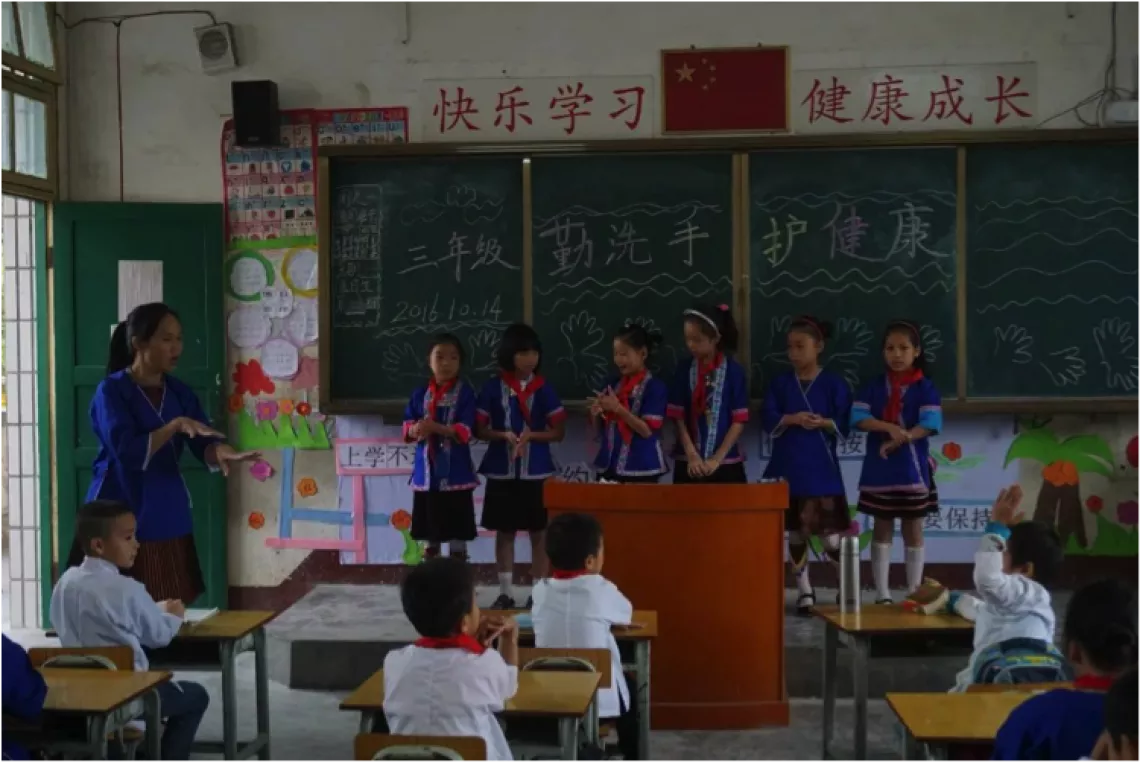
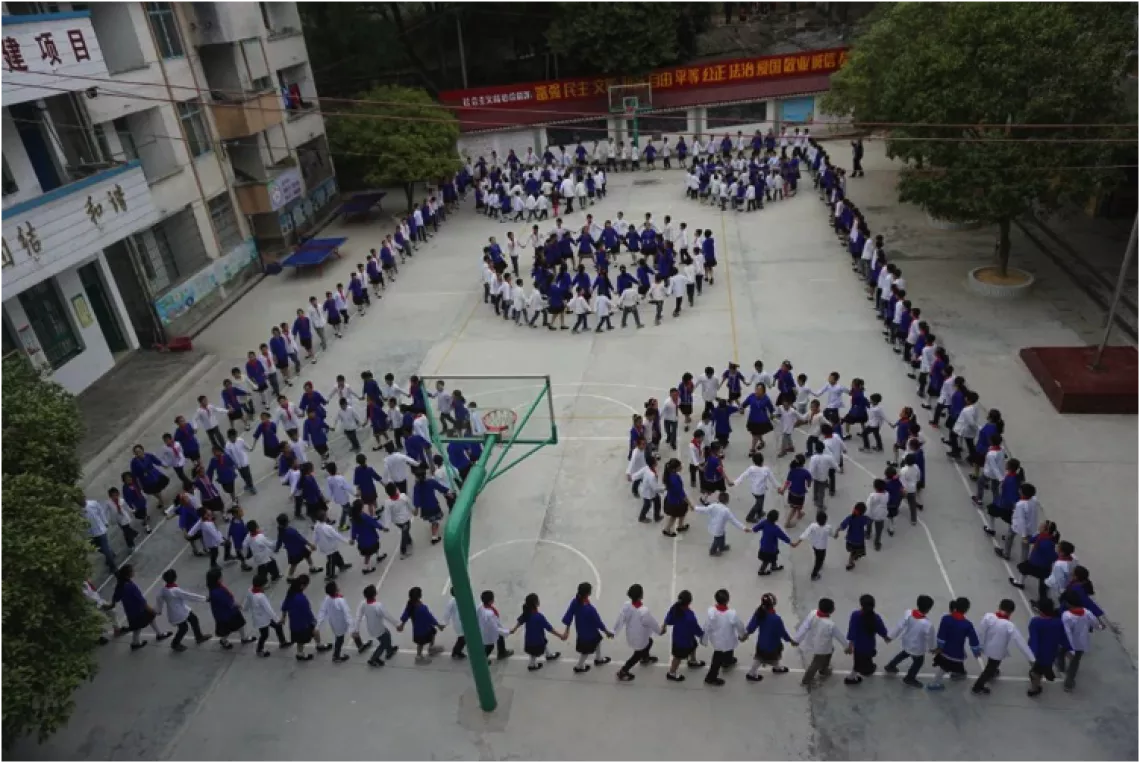
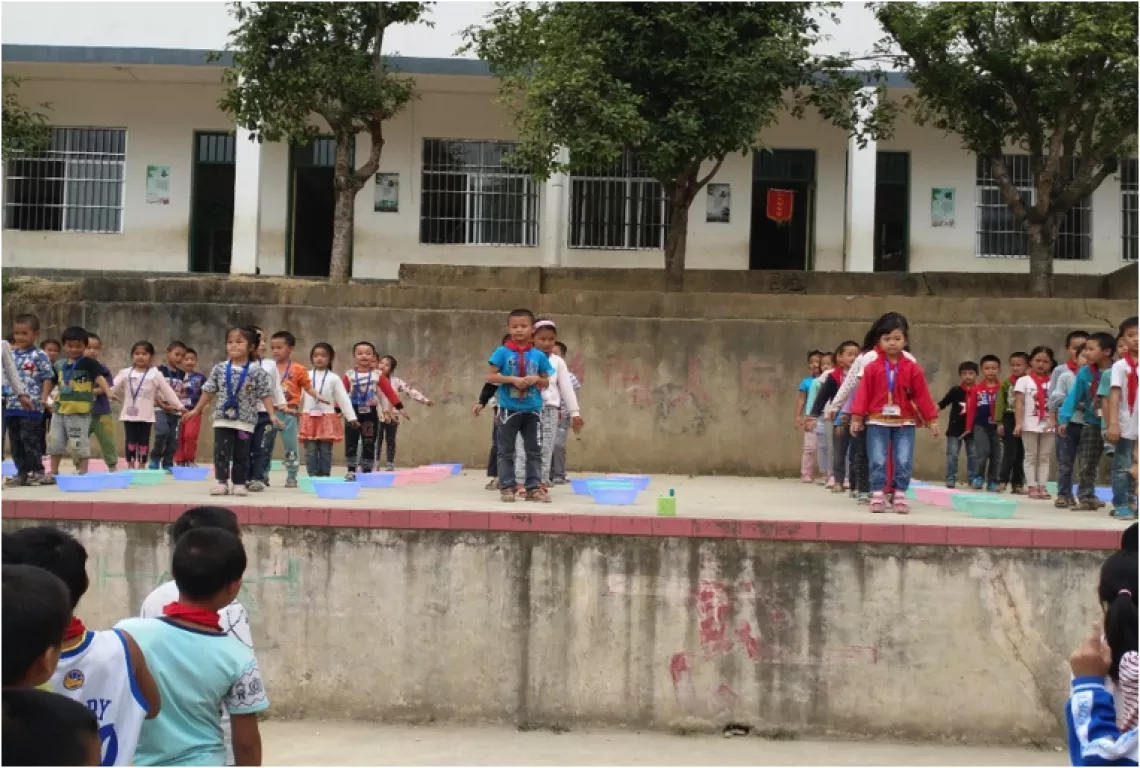
Sanjiang County, Guangxi Zhuang Autonomous Region
I was delighted to find that Sanjiang County (Guangxi Zhuang Autonomous Region) incorporated ethic performances to encourage active participation of school children. DuoYe is a traditional performance of Dong People that involves singing and dancing. Through this enjoyable performance (Figure 3 and 4), children are taught about effective handwashing with soap which will promote healthy habits that will benefit them all their life. UNICEF advocates for using participatory approaches in teaching methods.
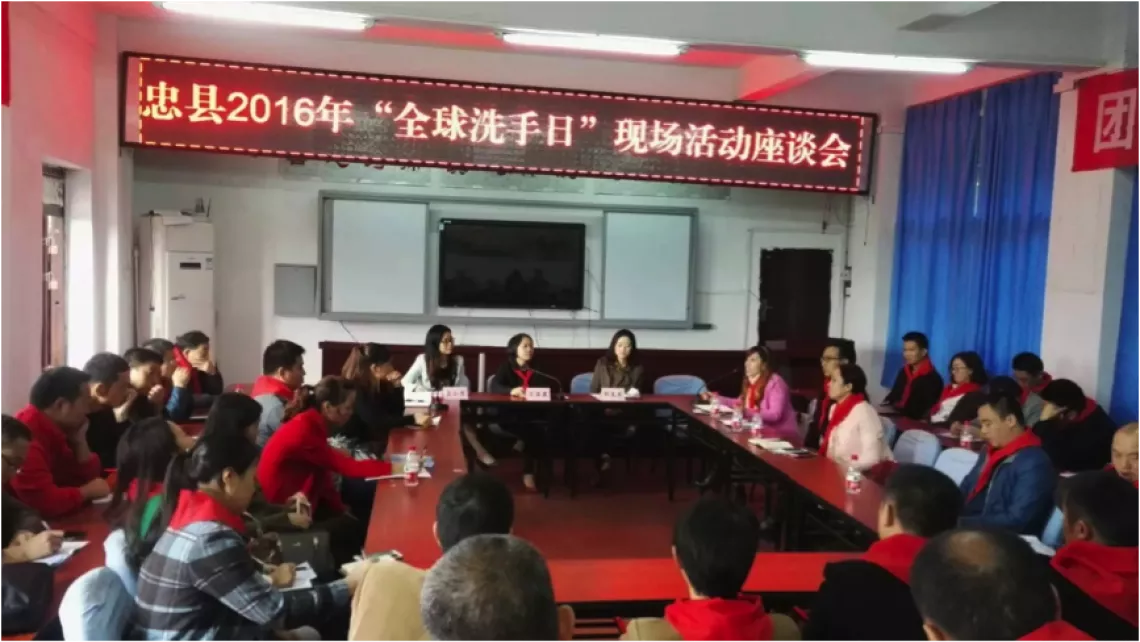
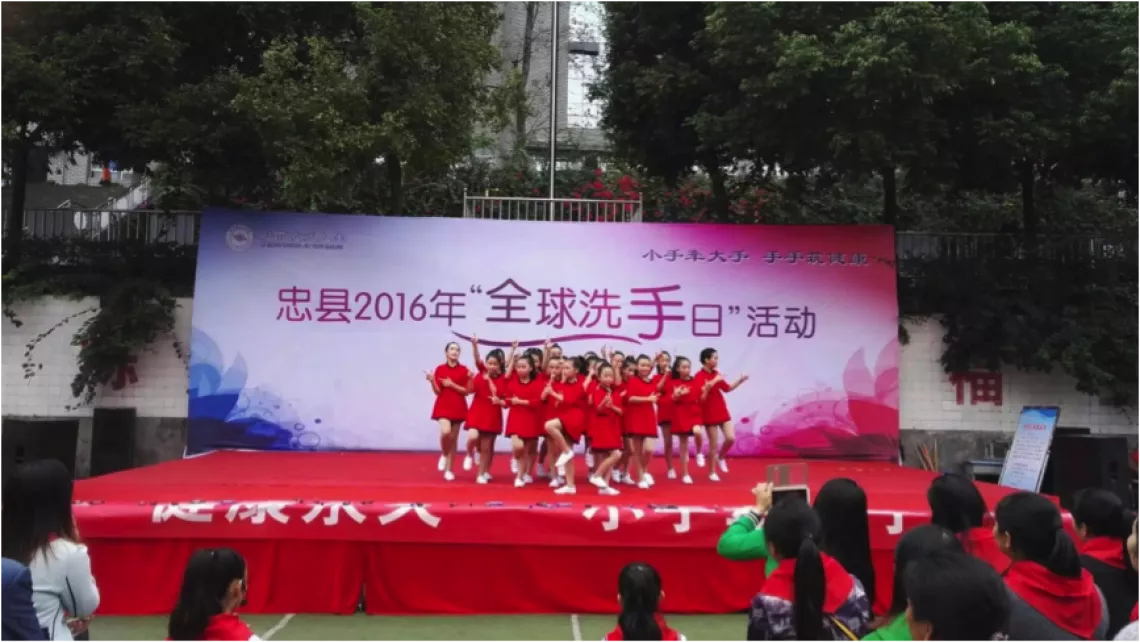
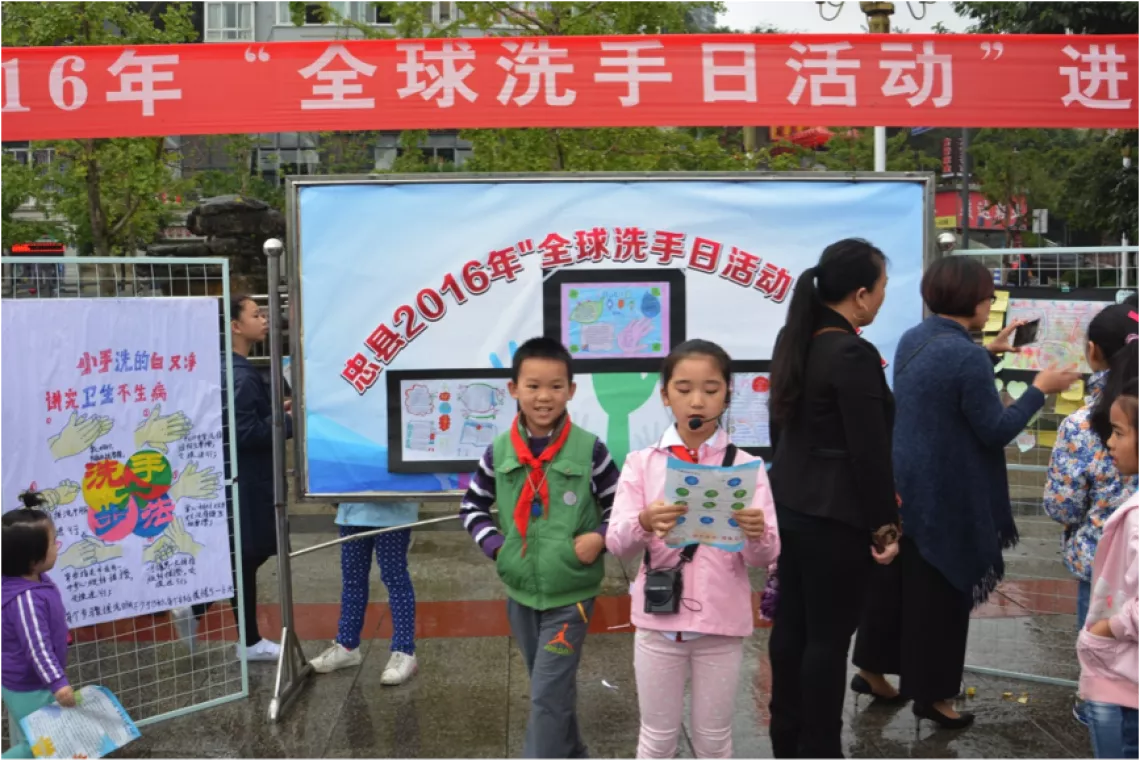
Zhong County, Chongqing
Zhong County of Chongqing held a lively celebration for Global Handwashing Day. The County Education Commission developed four thematic events, one seminar for school principals (Figure 5); one demonstration programme (Figure 6) that engaged all 50 project counties, one advocacy event (Figure 7) for communities around Zhong Zhou Square, and one celebration themed “Regular Handwashing, Healthy Life” at all 50 schools..
I took special notice that their initiative engaged school, family, and community, and their constructive promotion of healthy habits not only for children, but for all people. During the course of the celebration, children took the lead in participation, action and advocacy for correct handwashing. The girl in Figure 7 is clearly so proud to be promoting handwashing, and to be receiving admiration from her classmates.
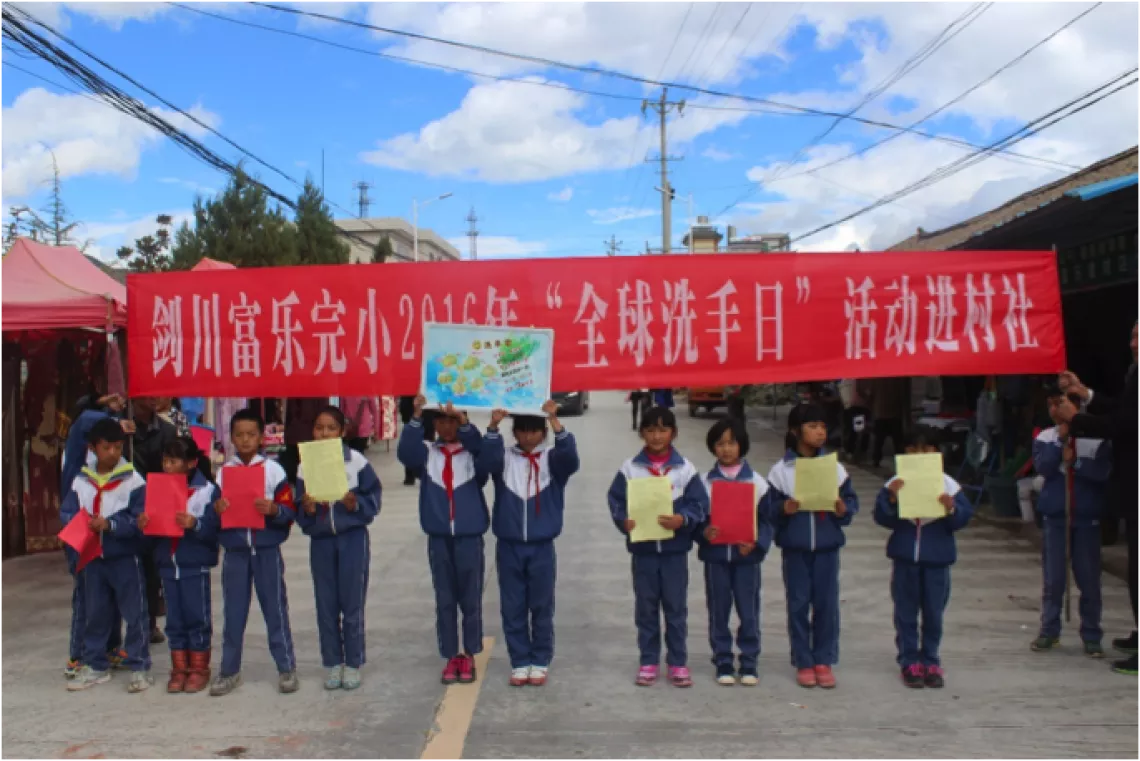
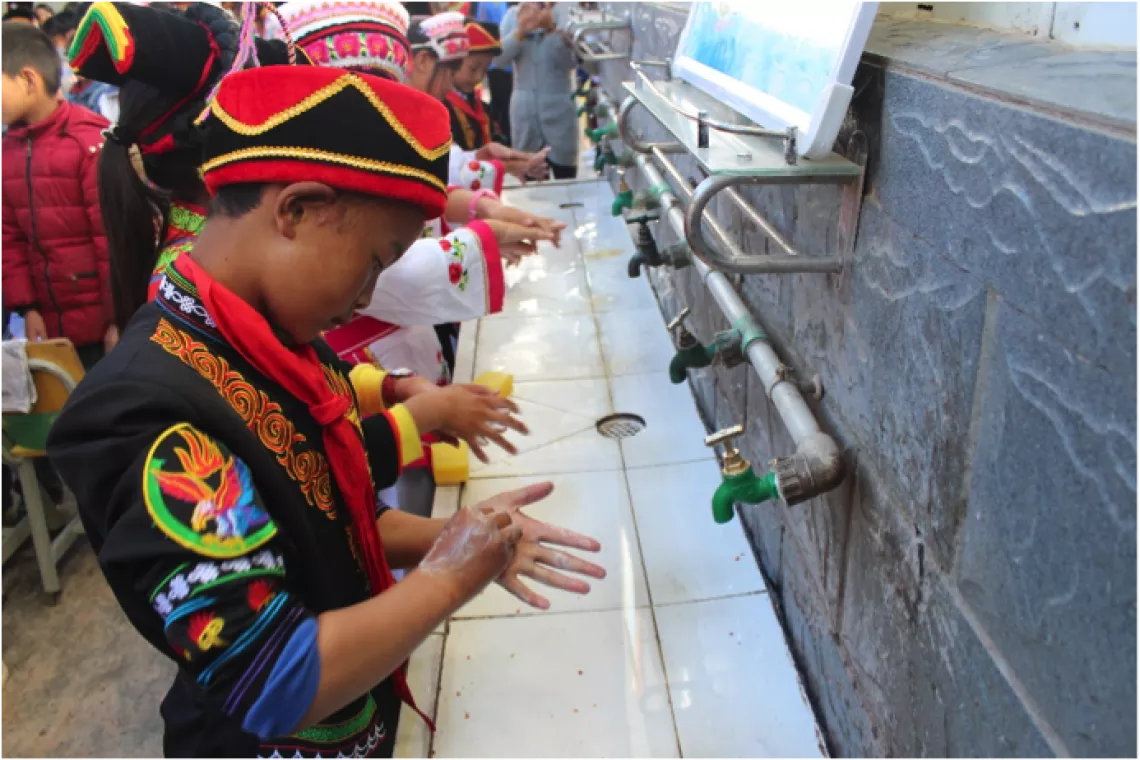
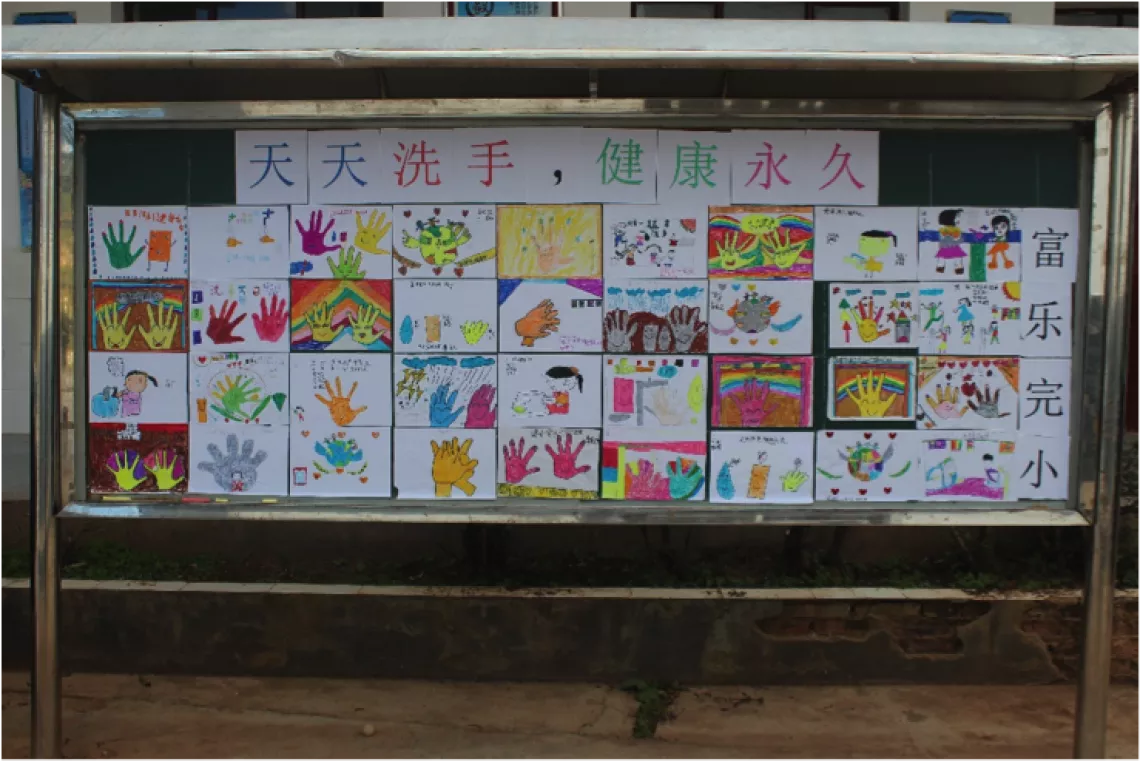
Jianchuan County, Yunnan Province
To educate students to wash hands with soap and develop good handwashing habits, the schools in Jianchuan County, Yunnan Province organized students to wash hands before meals and after physical education classes, as well as after using the toilet. They also celebrated Global Handwashing Day by incorporating cultural and ethnic traditions in and outside of the school. Students were requested not only to wash hands correctly with soap, but also to teach their families (Figure 8).
About the Water, Sanitation and Hygiene (WASH) Programme
From the 2016 to 2020 programme period, the WASH programme at UNICEF China will work on five thematic areas: Total Sanitation, WASH in Schools, WASH in Health Care Facilities, Climate Change and Disaster Risk Reduction. WASH in Schools is one of the four pillars for the Child Friendly School programme. WASH in Schools aims to provide safe drinking water, improve access to and maintenance of clean, gender friendly and inclusive sanitation facilities and promote hygienic behaviours and lifelong health. By now, there have been 300 schools from 6 counties of 5 provinces of mid-western China participating in the WASH in Schools project.
For more details on Water, Sanitation and Hygiene, please visit here.


